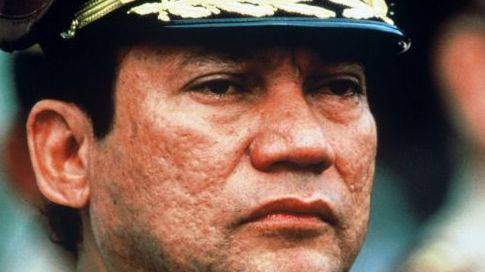
A former military leader of Panama and United States’ trusted ally, General Manuel Antonio Noriega, passed away late on Monday, aged 83, at Panama City’s Santo Tomas Hospital, according to the country’s Secretary of State for Communication, Manuel Dominguez.
Reports said Noriega was recently operated upon as a result of hemorrhage following brain surgery.
“The death of Manuel A Noriega closes a chapter in our history; his daughters and relatives deserve a funeral in peace,” Panama’s President Juan Carlos Varela tweeted early Tuesday.
Noriega’s relationship with the US turned sour when he was forcibly removed as American troops invaded his country in 1989. He was later jailed in the US on drugs and laundering charges, spending the rest of his life in custody in Panama after he was charged with murder, corruption, and embezzlement.
Saharareporters gathered that he was however released into house arrest in January this year, ostensibly to prepare for an operation in early March to remove a brain tumor.
Although he was never elected to office, Noriega became the de facto leader of Panama, serving six-year tenure as military governor in the 1980s while enjoying maximum support from the US to battle the influence of communism in Central America during the time.
But Noriega’s increasing internal repressive rule soon angered the US, especially after intelligence indicated that he was selling his services to other intelligence bodies and drug-trafficking organizations.
Noriega was indicted in a US Federal Court on drug-trafficking charges in 1988 and after US observers declared he had stolen his 1989 election mandate, President George W. Bush launched the “Operation Just Cause” invasion, sending in nearly 28, 000 troops that first sent the strongman into hiding at the Vatican’s diplomatic mission in Panama City before he was forced to surrender, after which he was whisked to the Miami, Florida to face charges.
In an interview on Panamanian TV in 2015, Noriega read out an emotional statement of apology, saying: “I apologize to anyone who feels offended, affected, harmed or humiliated by my actions or those of my superiors whilst carrying out orders, or those of my subordinates, during the time of my civilian and military government.”
END

Be the first to comment